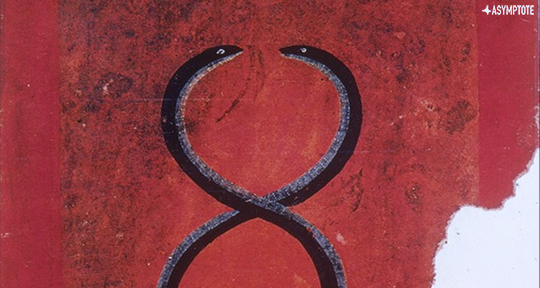In our column “Retellings,” Asymptote presents essays delving into myths, those enduring stories that continue to transform and reincarnate. In this rendition, Kanya Kanchana traces the winding path of serpents across world literature and translation in a longform lyric essay. Weaving between times and traditions, Kanya draws together the philosophical concepts, conflicting perceptions, and atavistic emotions that serpents inspire, such that we are not quite sure where one story ends, and another begins.
“In every story, if you go back, as far back as you can, to the point where every horizon disappears, you find a snake, the tree, water.”
– Roberto Calasso, Ka

When the word nāga (Sanskrit: serpent) is uttered, the first syllable must rear its hood in the air like a cobra, and the second must root into the earth like the coil it lifts itself from. The sound is the word. Where the ouraeus, the symbol of the rearing Egyptian cobra, Naja haje, is found, it’s an unmistakable mark of sovereignty, the golden hood that guards the head that wears the crown. The symbol is the deed. Sound, symbol, story—myth is the skin beneath the skin of the world, that which shapes from within.


